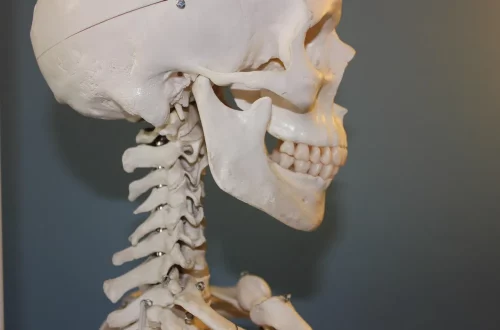
Should I Buy a Puppy with an Umbilical Hernia Considerations and Care
Bringing a new puppy into your home is an exciting and transformative experience. Puppies can bring joy, companionship, and a sense of purpose to your life. However, as with any new pet, there are important considerations to keep in mind to ensure their well-being and health. One issue that may arise is the presence of an umbilical hernia. This condition is not uncommon among puppies and can raise a host of questions for prospective pet owners. Understanding what an umbilical hernia entails, its potential impact on your puppy’s health, and the necessary care and considerations before making a decision is crucial.
The overall health of your puppy should always be a priority. While many puppies with umbilical hernias lead normal, active lives, there are factors to consider when deciding whether to adopt one. It’s essential to comprehend the implications of this condition and how it might influence your puppy’s future. Whether you’re a first-time pet owner or a seasoned dog lover, being informed about the medical and emotional aspects is essential for making the best decision for both you and your potential furry friend.
Understanding Umbilical Hernias in Puppies
An umbilical hernia occurs when part of the abdominal lining or tissue protrudes through an opening in the abdominal muscles near the umbilical cord. This condition can be congenital, meaning it is present at birth, and is often seen in puppies. The hernia appears as a soft bulge or swelling in the area around the belly button. While it can be alarming to notice this bulge, it is essential to understand that not all umbilical hernias pose serious health risks.
Most cases of umbilical hernias in puppies are relatively benign and do not necessarily require immediate medical intervention. However, there are varying degrees of severity. The hernia can be small and easily reducible, meaning it can be pushed back into the abdomen without much effort. In contrast, larger hernias may contain abdominal organs and could lead to complications if not monitored. It’s important to consult a veterinarian to assess the situation properly.
One of the key factors in determining the seriousness of an umbilical hernia is whether it is incarcerated or strangulated. An incarcerated hernia occurs when the tissue becomes trapped, while a strangulated hernia happens when blood supply to the trapped tissue is compromised. Both conditions can be life-threatening and require immediate veterinary attention. Therefore, understanding the specific characteristics of your puppy’s hernia is essential in determining the level of care and monitoring required.
In many cases, puppies with umbilical hernias can lead normal lives, especially if the hernia is small and does not show signs of complications. Regular veterinary check-ups can help monitor the condition and ensure that your puppy remains healthy. If surgery is recommended, it is typically a routine procedure that can be performed when your puppy is old enough.
Assessing the Risks and Benefits
When contemplating the adoption of a puppy with an umbilical hernia, weighing the risks and benefits is crucial. On one hand, adopting a puppy with a minor hernia may not significantly impact its quality of life, especially if the hernia is monitored and managed appropriately. Many puppies with this condition grow up to be healthy and active companions.
However, potential risks should not be overlooked. The main concern with umbilical hernias is the possibility of complications. If the hernia enlarges or shows signs of distress, it could lead to serious health issues. Therefore, prospective puppy owners must be prepared for the possibility of surgical intervention or increased veterinary visits.
Financial considerations are also a critical aspect of this decision. Veterinary care, including potential surgery, can be expensive. It’s important to assess your budget and consider whether you are financially equipped to handle any medical issues that may arise. Pet insurance may be a viable option to explore, as it can help alleviate some of the financial burdens associated with veterinary care.
Another factor to consider is your lifestyle and commitment level. Puppies require time, attention, and training. If you are a busy person or have other commitments, ensure that you can provide the necessary care and attention for a puppy, especially one that may require additional veterinary visits.
Ultimately, the decision to adopt a puppy with an umbilical hernia should be made with a comprehensive understanding of the potential implications, both positive and negative. Engaging with a veterinary professional can provide valuable insights and help you make an informed choice that aligns with your capacity to care for your new companion.
Care and Management of a Puppy with an Umbilical Hernia
Once you have decided to adopt a puppy with an umbilical hernia, understanding how to care for and manage the condition is important. Regular veterinary check-ups should be a top priority. Your veterinarian will monitor the hernia’s size and condition, ensuring that no complications arise. They can also provide guidance on how to care for your puppy during this time.
It’s essential to watch for any signs of distress or complications associated with the hernia. Symptoms such as vomiting, lethargy, loss of appetite, or changes in behavior should prompt immediate veterinary attention. Being vigilant can help you catch potential issues early, ensuring your puppy remains healthy and happy.
Diet and nutrition also play a critical role in your puppy’s overall health. A well-balanced diet will support your puppy’s growth and development, enhancing its immune system and overall well-being. Consult with your veterinarian to determine the best dietary options tailored to your puppy’s specific needs, especially if surgery is anticipated in the future.
Socialization and training are vital components of your puppy’s upbringing. Despite the hernia, your puppy should still receive proper socialization and training to ensure it grows up to be a well-adjusted adult dog. Engage in positive reinforcement training techniques and expose your puppy to various environments, people, and other animals.
If surgery is necessary, it’s crucial to follow your veterinarian’s post-operative care instructions diligently. This may include restricting activity, managing pain, and monitoring the incision site for signs of infection. Keeping your puppy calm and comfortable during the recovery period is essential for a successful healing process.
In conclusion, adopting a puppy with an umbilical hernia can be a rewarding experience, but it requires careful consideration and commitment to their care. By staying informed and proactive, you can ensure your new furry friend has the best chance at a long, healthy, and happy life.
**Disclaimer:** This article is not intended to serve as medical advice. For any health-related concerns regarding your puppy, please consult a qualified veterinarian.




